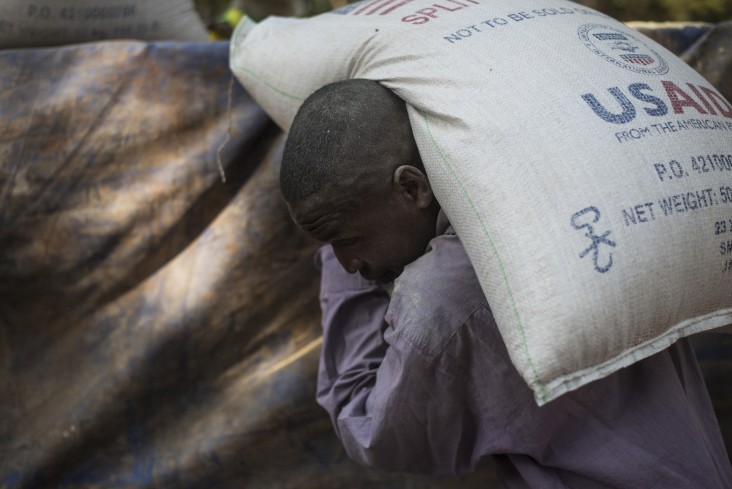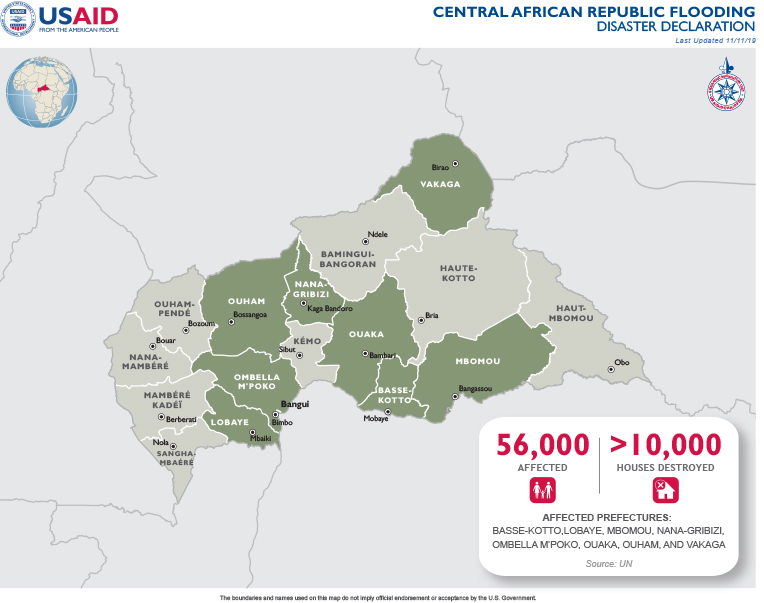- What We Do
- Agriculture and Food Security
- Democracy, Human Rights and Governance
- Economic Growth and Trade
- Education
- Environment and Global Climate Change
- Gender Equality and Women's Empowerment
- Global Health
- Humanitarian Assistance
- Transformation at USAID
- Water and Sanitation
- Working in Crises and Conflict
- U.S. Global Development Lab
Speeches Shim

Latest Fact Sheet
view text version [pdf, 1mb]
12.15.2020 - Central African Republic Map ![]() (pdf - 1 MB)
(pdf - 1 MB)
CAR Map - 11-11-2019 ![]() (pdf - 521k)
(pdf - 521k)
Key Developments
Clashes between armed groups and intercommunal tensions continue to displace civilians and restrict humanitarian access in the Central African Republic (CAR).
Approximately 1.9 million people are projected to experience acute food insecurity through April 2021, a 20 percent increase from last year, with potential to increase to 2.3 million people in need during the lean season.
Heavy flooding in October and November adversely affected more than 28,000 people, concentrated in CAR’s Bamingui-Bangoran, Mbomou, and Ouham prefectures
Background
CAR has faced more than six years of conflict. The initial trigger was the Séléka armed opposition entering the capital city of Bangui on March 24, 2013 in opposition to then-President François Bozizé and effectively seizing control of the country. Security conditions deteriorated further in December 2013 when clashes erupted between various armed groups. This fighting persists and has been further complicated by the fragmentation and reforming of alliances. In February 2019, the Government of CAR and 14 armed groups signed a peace agreement which has led to fewer direct clashes; however, insecurity and attacks against civilians, humanitarians, and UN peacekeeping forces continues.
While relief agencies are working to help people affected by the conflict, the ongoing fighting and logistical constraints have impeded humanitarian efforts, particularly in the more remote areas of CAR.


Comment
Make a general inquiry or suggest an improvement.